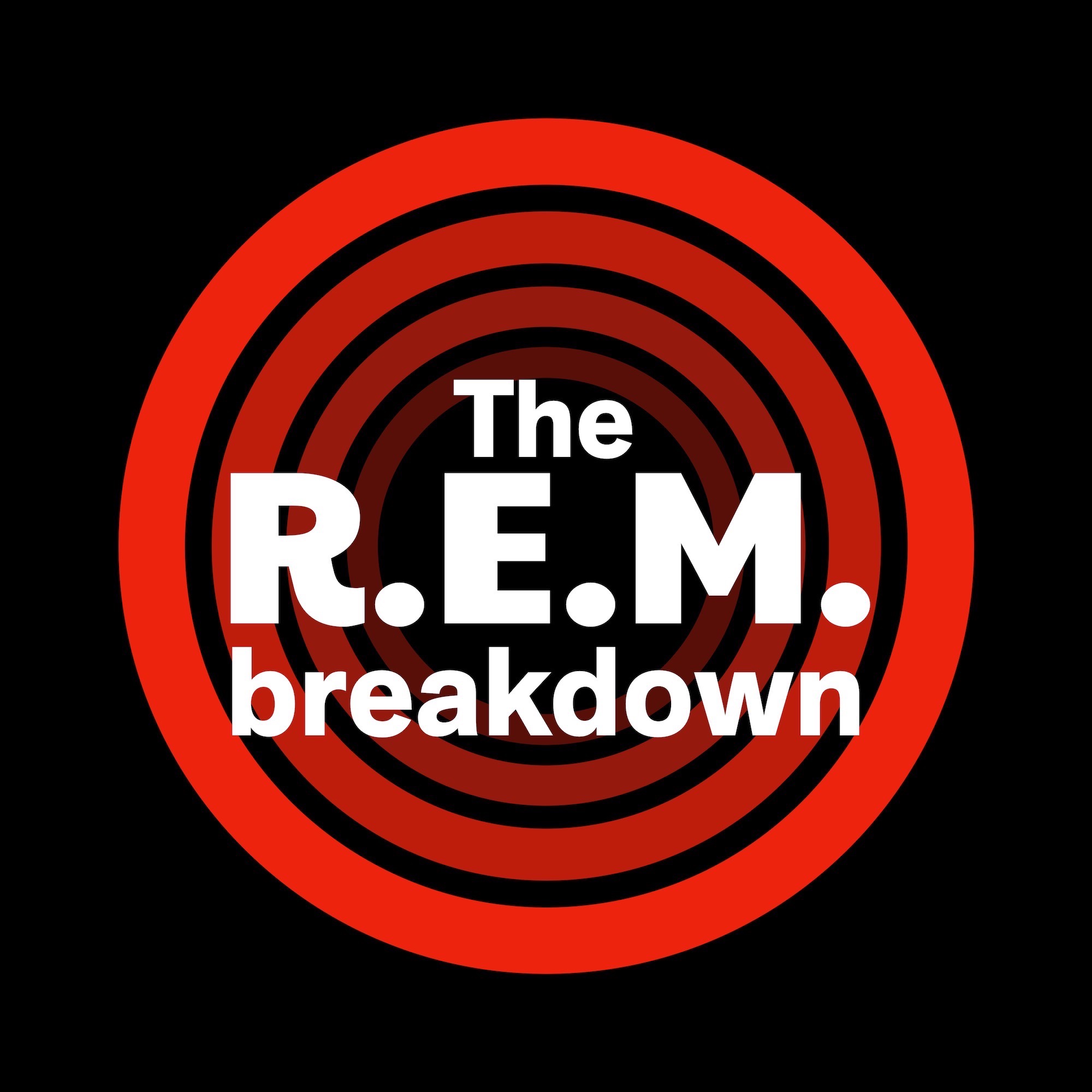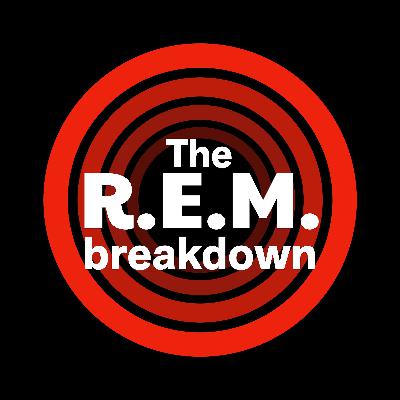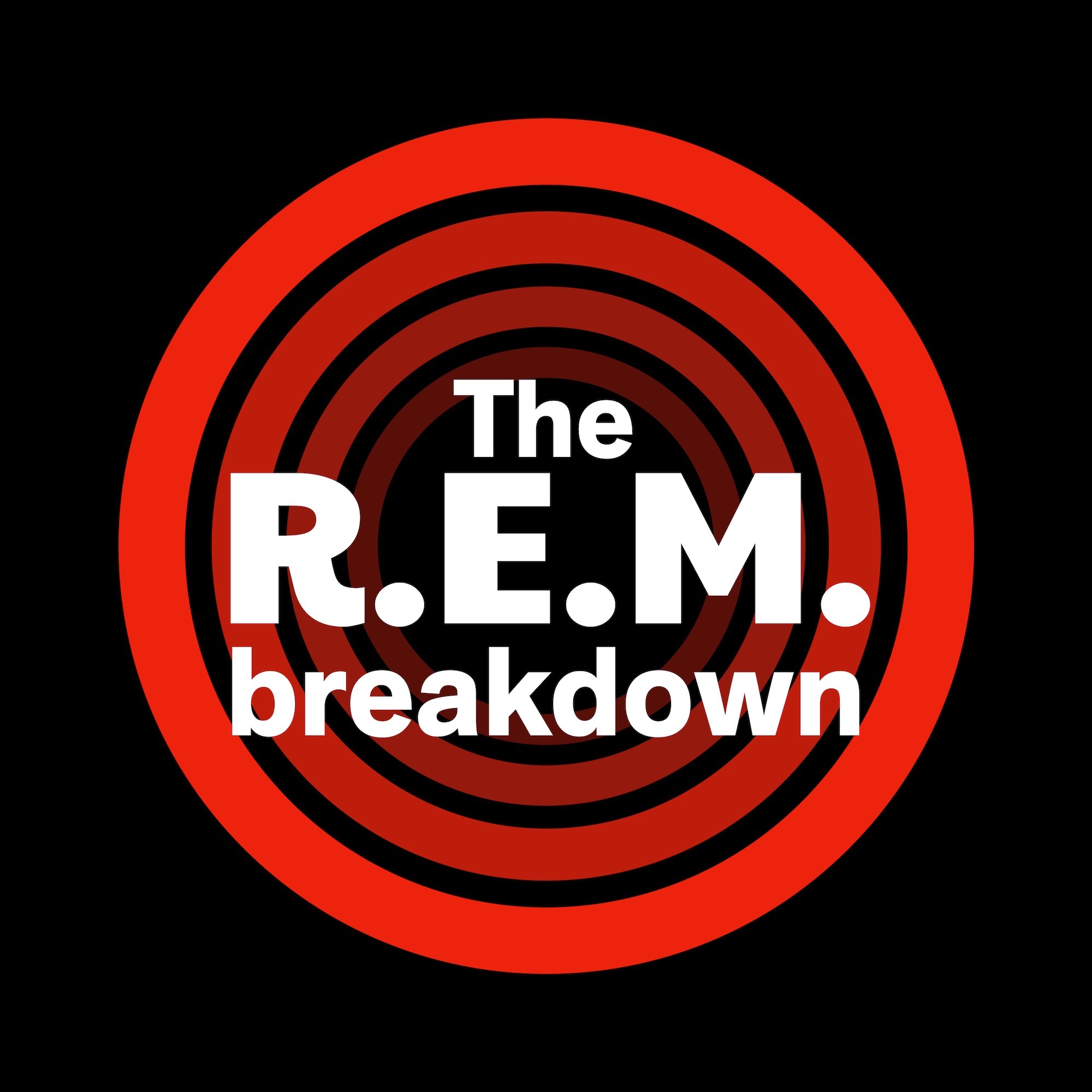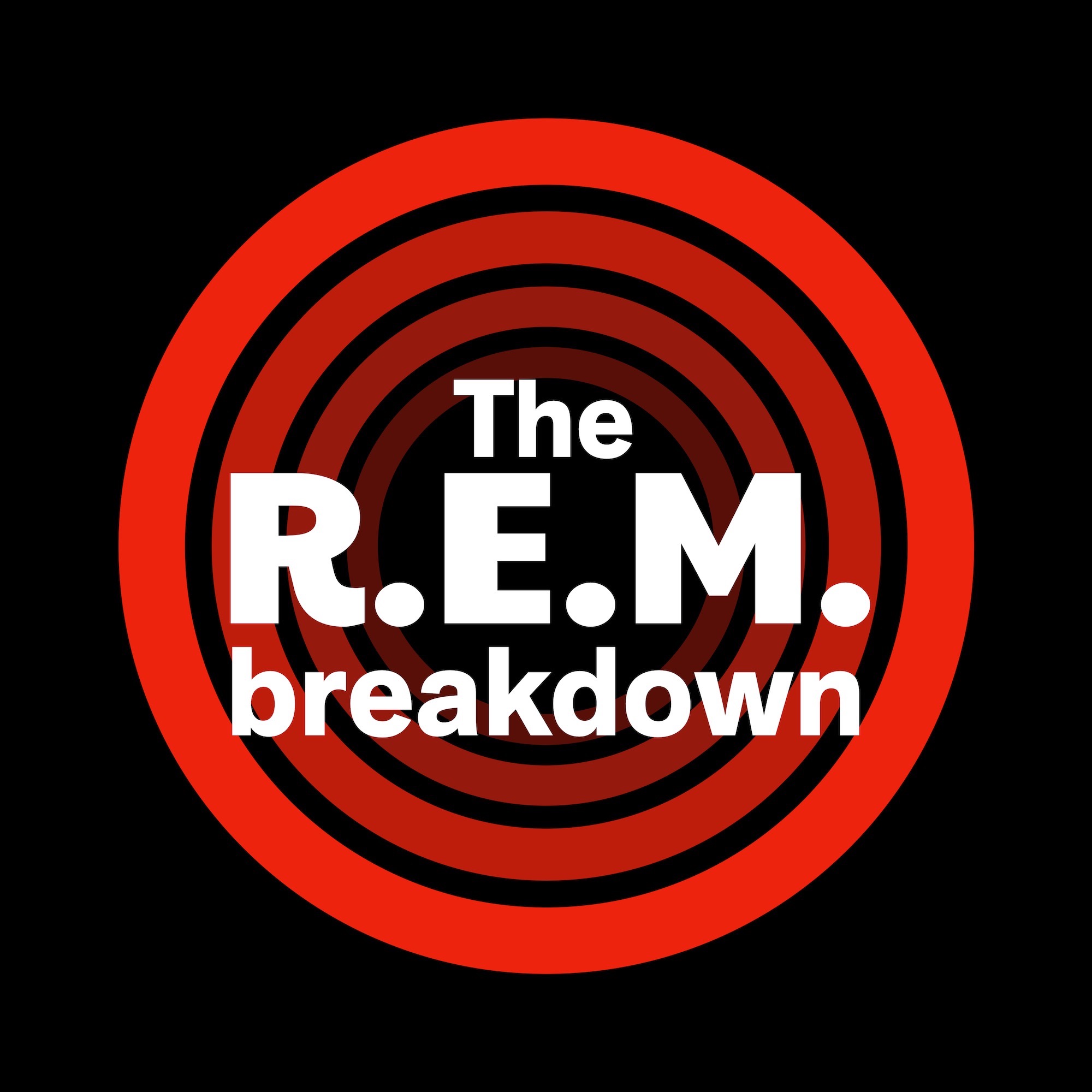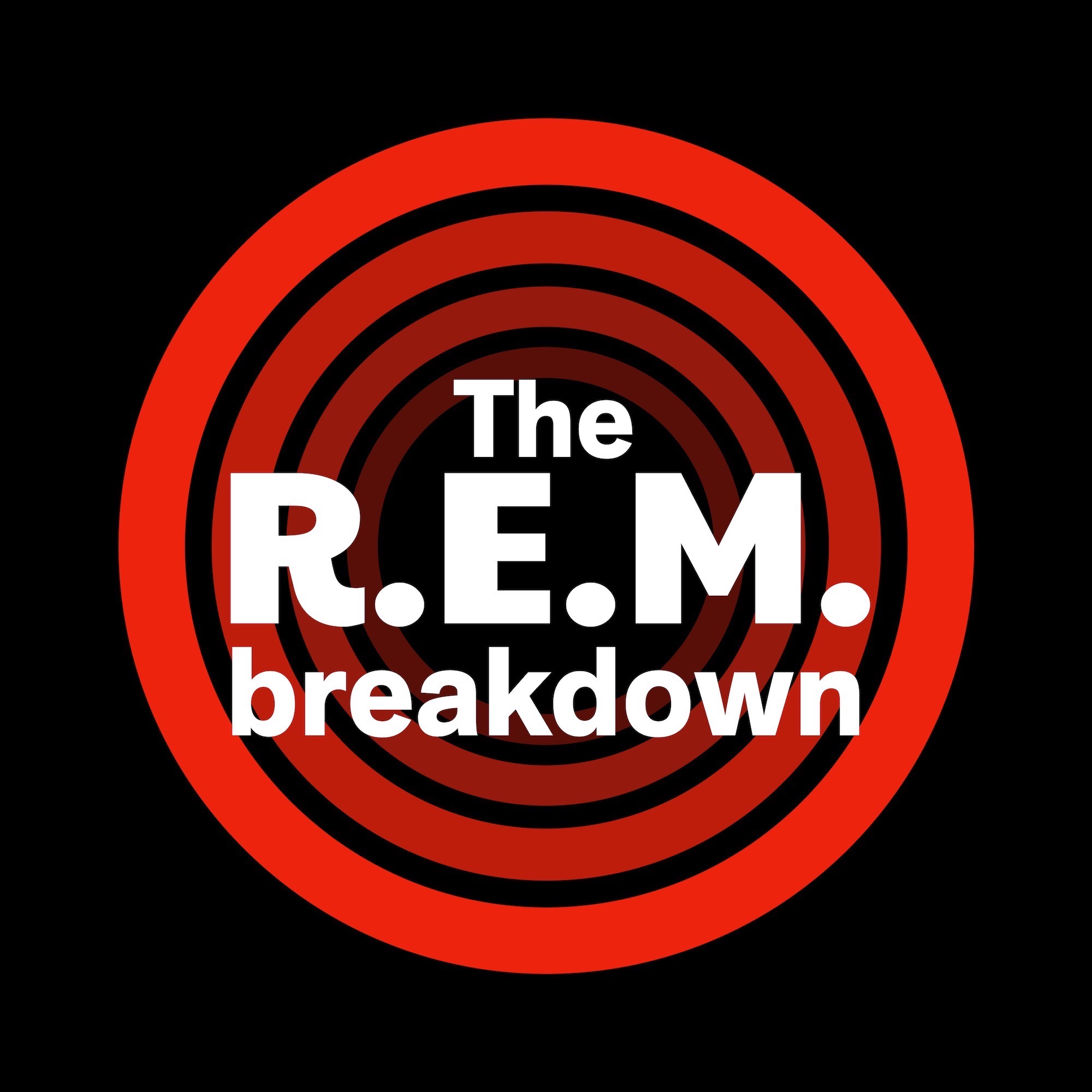 Radio Free Europe - Hib-Tone Single
Radio Free Europe - Hib-Tone Single
Description
jD and Rico begin their journey through the discography of R.E.M. starting at the start with the classic, Radio Free Europe.
Transcript:
[0:16 ] Hey, it's JD here, and I'm joined as always by Rico Borrego to discuss the work.
[0:22 ] Of seminal alternative band REM.
Every week we'll explore a different song in the band's catalog going in chronological order to better understand just why this four-piece was so influential, innovative, and downrightawesome.
We're from two different generational cohorts, so our experiences may may differ. So there's that.
How are you doing this week, Rico? Well, I'm doing great.
I've been very excited for today to finally start this podcast with you.
Yeah, me too. I've been thinking about it a lot this week.
I'm honored you picked me because I know there's probably a lot of other people maybe more qualify to co-host the REM podcast.
Oh, I disagree. I've been reading your, on the REM subreddit, I've been reading your song of the week, you know, not religiously.
I read the Tragically Hip one religiously, but the REM one I pop in on all the time, and you've got your thumb on the pulse.
I really feel as though you're a great representative for both your generational cohort and to represent this band.
[1:34 ] I appreciate those kind words, and you know, I've been listening to you for the last couple of years when you've done both your Tragically Hip podcasts.
So I'm just excited to be part of your next journey.
And yeah, REM is definitely my top favorite band. So no better other way to do this. Yeah.
So where do we start?
[1:58 ] I guess we start at the start, right? Yeah. You begin at the begin.
That's all nice. Nicely played.
[2:07 ] So that takes us all the way back to July 14th, 1981, when Bill Barry, Michael Stipe, Peter Buck, and Mike Mills all got together with Mitch Easter and recorded what is now knownas the hip-tone version of Radio Free Europe.
What are your thoughts on this song?
[2:34 ] You know, Radio Free Europe, when I first heard it, and I got into the band way after they broke up, you know, and I got into their later period stuff.
[2:47 ] Their Warner Brothers period.
And when I finally made my way back to Murmur and, you know, even back further, Chronic Town and to the single, I think the thing that surprised me most is how much energy theyhad.
Which makes sense i guess because they were all young back then but like they really were putting in a lot of work into these early songs and it's it's kind of actually incredible howpolished even this hip tone version is compared to what would later appear on murmur like it doesn't sound like a demo to me it sounds like a fully finished product i completely agreewith you it's it's It's a blueprint for what they are in the IRS years.
You know, it really, it's got a sound and a vibe that just resonates.
And the fact that they are that fully formed this early on is indicative of just how great this band is.
You know, to compare it to athletics, oftentimes there are people that just excel at their sports. And they've just, you know, they can't explain why they're so good, but they just are.
And I feel like REM is that in music, like they were a savant, like right off the bat.
[4:08 ] Yeah. And they really, you know, listening, especially to Radio Free Europe, it's like they were kind of taking like a post-punk sound.
And, you know, kind of weaving it into some like almost new wave and it's, it's a very sound and, you know, although I wasn't even alive when the song was released, like I can imagine,you know, if you're in your twenties and you're going to college, like this is the music to listen to at that time.
Well, I'm just trying to think going back to 1981, I was, I was seven.
Um, so it was before my time in terms of like finding music.
I was listening to top 40 music at that time, probably, you know, just whatever my mom and dad had on the radio or my sister, my older sister, listening to Kiss and things like that.
But I think that I've lost my train of thought. Shit.
[5:05 ] That's okay. We'll fly by the seat of our pants here.
You know, it's important to think about what was going on, you know, in that time period.
Period that's what i was that's what i was talking there's nothing else that sounds like maybe elvis costello maybe yeah yeah i can see that but like what else was going on at that time thatsounded like radio free europe and it's you know it's so funny too because like you know i know the band was you know like michael stipe uh and bill barry you know they wereinfluenced by I like Patti Smith and the Velvet Underground.
And it's like, you can kind of hear a little bit of that even in, you know, this first single, but they totally put their own spin on it.
And I think the thing I like most about Radio Free Europe is it kind of has all of those R.E.M. trademarks already.
[5:57 ] Yeah. You have, you know, those gorgeous Mike Mill backing vocals.
Yep. You have those trademark Peter Buck arpeggios in the pre-chorus.
That's right Bill's drumming is just like energetic throughout the whole thing and then you have Michael who's you know at this time maybe not delivering you know, coherent lyrics andeven he admits to that but like the melodies are just so catchy they're so hooky and i feel like that's kind of what they would run with for you know murmur and every other albumbasically going forward until they decided to experiment you know yeah it's very mumbly but it's it's you're right it's so melodic it's so melodic what he does with you know almostcreating like a soundscape with his voice yeah and people didn't you know people even today go oh i never knew what the words were and i didn't care because it's just it sounds so goodand you just kind of hum your own words when you're singing it and watching live performances.
[7:03 ] Of them doing this song whether it's on letterman or you know their their early concerts michael starts kind of making up lyrics throughout the song he's kind of finding the words ashe's going and i think that's a really cool kind of aspect to this song specifically yeah yeah i agree, dude the bass work in this song is dazzling like he is all over the fretboard at some uhyou know uh it just sounds so great on on headphones you know and it's very interesting the way like he knows mike mills knows when to hold back and you know maybe let peter takeover and then there's other other times where he like knows when to start playing a counter melody you know that kind of gives the song a new life and peter does the same thing too likeyou know the beginning beginning of the song it's a lot of just down plucking and chords at the very end and then you get to that pre-chorus and he's doing those arpeggios oh it just itsounds beautiful it really opens the song up yeah yeah i agree it's uh it's a it's a nice piece of work it's a nice piece of work and it's really interesting too that they you know record thissong.
[8:28 ] And, you know, we'll eventually get to Chronic Town and to Murmur that it doesn't make it on Chronic Town.
[8:36 ] Very strange. And then gets re-recorded for Murmur.
[8:41 ] And I, I, from what I read, the band definitely preferred this version, the hip tone version over. Oh, really?
Yeah. They, they think even though they agree that maybe the production's a little outdated and it's not totally polished, they just liked the performance they got on this version and theyprefer, it's definitely a little faster.
[9:05 ] Yeah. It's, it's, the tempo is, is much more, uh, you know, swinging.
Yeah and um i want to say i read to peter at the time when they re-recorded it for murmur and he heard it he like broke the record in half because he was just kidding yeah no he he was hewas pissed at the way it sounded wow but you know i think at the time they're like we we probably can't really argue with you know these people who've just signed us right dad i have noidea i i do really like this version of the song uh and i another thing i like about it too is and they really the band this band does this a lot in their earlier songs is they really hold off on thatchorus they go verse they go pre-chorus and you think you're going to get a chorus they take you back to a second verse second pre-chorus then hit you then you get to pay off yeah it's alittle a reward you know yeah yeah i like that and and again going going back to the lyrics they don't.
[10:13 ] Really mean anything and in fact michael actually wrote he changed some of the lyrics when they re-recorded it from murmur oh and i went back and kind of listened to both andread along to what people posted online even what people post online isn't correct like some people think think in the pre-chorus he's saying ray beam and then other people think he'ssaying radio.
[10:39 ] And if you kind of go back and listen radio i i did too but then i was listening to the hyptone version and i'm like he does kind of sound like he's saying ray beam but i'm like thatwouldn't make sense but i mean the song to it's michael stein exactly like and radio free europe um i know in the uh i feel fine compilation set they released um and the liner notes Mikementioned that they chose the title Radio Free Europe not based on the actual U.S.
Broadcast system called Radio Free Europe.
They just picked that as a name because it sounded cool, he said.
It does sound cool. Yeah. It does sound cool.
It sounds both artistic and sort of mysterious at the same time.</

